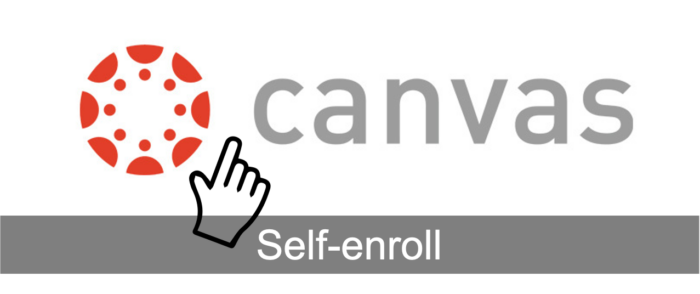Equity and Inclusion Faculty and Staff Course Library
MCC employees have access to fully online Equity and Inclusion training courses via Canvas. Courses are assigned to themed modules. When all criteria are met in a module (80 or higher score for training courses), employees earn badges that are awarded in Canvas. Training Source: Vector Solutions
Claim a Badge
- Go to the Canvas course where the badge was earned.
- Click on Credentials in the course navigation. If you have not met all criteria for the badge, the badge will appear grayed out on the page.
- Hover over the badge and click View Details.
- Review the badge information.
- Download or share your badge.
Title V SENDAS Professional Development Payment Opportunity
Employees that earn all 15 equity and inclusion training badges may be eligible for a $300 one-time payment for grant research. Completers will receive an email invitation from SENDAS staff to participate.
To earn the payment the employee must:
- acknowledge research parameters,
- submit an artifact to show the application of cultural responsiveness to your work at MCC, and
- agree to participate in a focus group (if available).
Research components should be completed outside of regular work hours. Employees are only eligible for a single one-time payment per term for this professional development. Payments are limited to grant funding.

The Influence of Unconscious Bias in Decision Making
43 minutes
*Required for MCC hiring committees
This course explores unconscious bias, the impact of myths and stereotypes in academia, and strategies faculty and staff can use to uncover and combat unconscious bias. Course takers will unpack myths surrounding ability, lifestyle, experience, and classroom behavior with the purpose of mitigating the impact of those myths in the school environment. The unique challenges facing LGBTQ faculty and students will be explored, along with what research says about providing support that fosters academic success and good mental health.

Communication for Inclusion
47 minutes
This course focuses on the importance of considering impact, not intent, when engaging with identity terminology and self-identification. Microaggressions are defined and explored, with an emphasis on the impact of unchecked microaggressions as well as on strategies for recipients, senders, and bystanders who want to mitigate the harm that microaggressions cause. The course ends by discussing microaffirmations and the way they can be used to counteract the negative impact of microaggressions.

Engagement with Diversity
25 minutes
This course focuses on how faculty and staff define and engage with diversity, using the iceberg model to illustrate how some aspects of diversity are not readily observable. This course examines how diversity resistance, reactions to difference, assumptions, and the ladder of inference can interfere with student engagement, while providing practical strategies, such as intentional exposure to difference and the virtual circle, to support faculty and staff as they learn to engage comfortably with diversity.

Personal Skills for a Diverse Campus
50 minutes
The course is about how higher education faculty and staff can deepen their engagement with diversity, communicate effectively with students and peers, and mitigate the influence of unconscious bias in decision-making.

Becoming an Ally, Part 1 & 2
36 minutes
Practicing ally ship is an important and rewarding endeavor. As an ally, you can develop new relationships with people who share the values of equity and inclusion. And you can make new personal and professional connections within your community. This course provides course takers with an overview of the tools needed to practice ally ship. Topics include defining ally ship, how to approach ally ship, ways to educate yourself as an ally, ways of learning about inequity and privilege as it relates to ally ship.
Acting as an ally helps turn personal goals about diversity and inclusion into everyday choices and actions that support members of marginalized groups and break down institutionalized discrimination. This course provides course takers of all experience levels with the tools needed to practice allyship. Topics include: the differences between effective and ineffective allyship; and ways to sustain ongoing allyship work.

Building Antiracist Culture in Your Organization
24 minutes
Today, the question isn’t so much whether, but how organizational practices and policies create a culture that disadvantages people of color. This course is designed to identify the ways in which racism may operate within an organization and provide skills for moving beyond recognition to taking action that builds and sustains antiracist culture.Topics covered include why it’s important to publicize a commitment to be an antiracist organization; how climate assessments and policy reviews can build trust and confidence in an organization; why antiracism must emerge from and be centered on BIPOC perspectives; and the steps for implementing antiracist change.

Cultural Appropriation Versus Appreciation
14 minutes
This course defines cultural appropriation and explains how it relates to an imbalance of power dynamics and a history of oppression in the culture being appropriated. Participants will examine cultural appreciation and learn how to engage with diverse cultures by taking the time to listen and seek information. Participants will also learn how cultural appropriation can cause lasting financial, social, and emotional harm for members of marginalized cultures.

Diversity Competence Mentoring Part 1-3
36 minutes
This course describes the value of developmental networks to a diversity-competent mentor. Course takers will examine sponsorship, employee resource groups – or ERGS, and group mentoring models, while determining the potential benefits for people in marginalized groups. Mentors will consider the benefits and pitfalls of each type of mentoring relationship and learn which models work best in a variety of situations.
This course helps mentors understand how relational mentoring can help diverse candidates uncover hidden rules, integrate into the workplace without sacrificing their identity, and ultimately find success. Course takers will explore the importance of setting boundaries and goals, how to avoid mentee symbolism and deindividuation, the benefits of unheard perspectives and distinctive skills, and how to integrate and include those perspectives and skills in the workplace.
This course identifies four common manifestations of bias that people from marginalized groups often encounter in academic and professional environments. Course takers will learn practical strategies for combatting both the presence and impact of bias in the workplace.

Students of Color at Predominately White Institutions: First-Hand Narratives
19 minutes
This course helps higher education faculty understand the unique challenges students of color face while enrolled in predominately white institutions. It relies on narratives of students who have experienced first-hand the harmful impact of being stereotyped, feeling tokenized, being doubted and undervalued, facing hostility, feeling isolated, and code switching.

Supporting Students at Predominately White Institutions
28 minutes
For students of color, choosing to attend a predominantly white institution does not come without the possibility of encountering racism and racial discrimination. Emotional stress, rooted in fear of failure and exposure to prejudice and exclusion, is a common and undue burden for these students. This course provides faculty and staff members at predominantly white institutions with an overview of how to support students of color within their learning community. Topics include: the kinds of race-based discrimination and marginalization most commonly experienced by students of color at predominantly white institutions, ways to shift the onus for creating an equitable and safe college experience from students of color to the institution, and skills for faculty, administrators and staff to help students of color be successful.

Communication Styles and Skills
11 minutes
This course provides basic information on the types and styles of communication, as well as a few ways to communicate more effectively with others. Topics included: types, characteristics and styles of Communication and ways to strengthen your communication. This course also includes an interactivity component that helps course-takers assess their own communication styles.

Conflict Management Staff to Staff
14 minutes
Conflicts that go unmanaged can have a negative effect on the working environment. However they also can provide a means to teach and model problem-solving skills for colleagues and students. This course provides college and university faculty and staff members with an overview of staff-to-staff conflict, as well as basic conflict management models. Topics include: staff conflicts, consequences and the steps to problem solving.

Discrimination: Avoiding Discriminatory Practices
29 minutes
As a supervisor, it’s essential that you help to establish and maintain a respectful and positive environment. This course provides supervisors with an overview of some best practices that will help them manage a diverse environment, avoid discriminatory behaviors and create a culture that embraces acceptance and respect for all.

Managing Difficult Behaviors
20 minutes
This course provides supervisory staff members with several ways to manage difficult behaviors among staff members. Topics covered include taking a look inward, avoiding taking difficult behavior personally, maintaining self-control, focusing on problem-solving, confronting the employee, using performance management, coaching the behavior, and asking the right questions.

Sensitivity Awareness
34 minutes
The goal of this course is to provide employees, supervisors, administrators, and other staff members with an increased awareness about the unique opportunities and challenges involved in working with different people. Topics covered include self-awareness, self-monitoring and perception, emotions, listening skills, and receiving and giving feedback.

